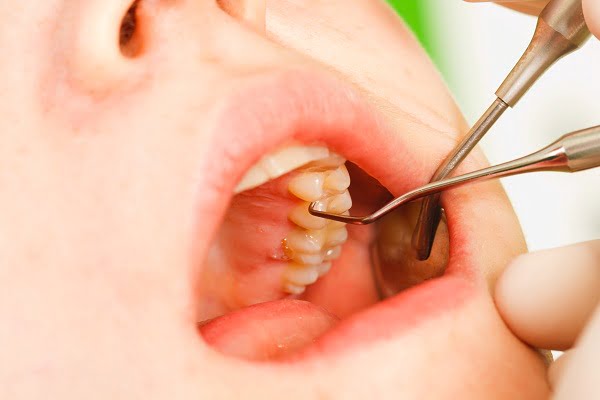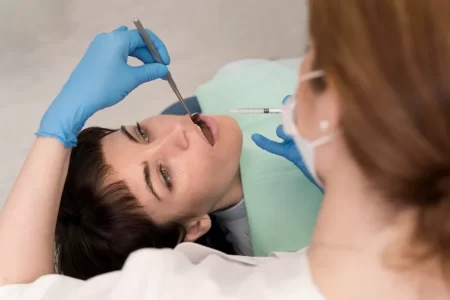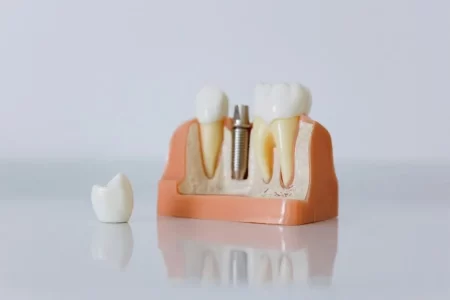False Teeth Options: Dentures, Dental Implants, Tooth Implants
- Updated on: Jul 13, 2024
- 5 min Read
- Published on Oct 3, 2019


Do missing teeth always need to be replaced?
Your teeth are designed and aligned very specifically to work together to help you chew, speak and smile. It is difficult to do these things when teeth are missing. Your mouth can shift and your face looks older even if your back teeth are missing. The good news is that missing teeth can be replaced.
Essentially, missing teeth doesn’t always need to be replaced but there are lots of good reasons why your dentist may recommend you to replace them. The good reasons include improving your appearance, making your eating more comfortable and keeping your mouth and other teeth healthy. Replacing missing teeth may also help you speak more clearly. You should talk to your dentist regarding how replacing the missing teeth might help you.
More: Tooth Loss (Edentulism): Causes, Prevention, Complications, Treatment
More: Loose Adult Tooth, Loose Tooth Pain in Adults
What are the various missing teeth replacement options? What are false teeth options? What are fake teeth options?
Depending on your needs and conditions, your dentist may recommend one of the following options. It is important to choose right treatment for you as the replacement teeth should last for years.
- Dentures (false teeth) – plastic or metal frameworks that carry false teeth which is removable
- Bridges – false teeth that are fixed onto adjacent natural teeth
- Dental implants – a titanium implant fitted with false teeth on top of it that is fixed directly into your jawbone (the bone of your jaw then fuses to the titanium)
Each type of teeth replacement options has their own advantages and disadvantages, therefore it is important to explore all your options, with the help of your dentist.
What are dentures?
Dentures are often regarded as false teeth. It is a kind of dental prosthesis for a person who has one or several missing teeth. Use of a denture for tooth replacement helps patients in the consumption of food as well as in speaking.
Dentures also help in protecting the remaining teeth and stop facial sagging. This kind of denture is known as partial denture. Patients who would like to replace their entire teeth can chose the option of full dentures. Dentures can be either removable or affixed in a place.
In case when only one tooth needs to be replaced, the false tooth can be hooked around adjacent teeth. In case of full dentures, a full set of permanent false teeth can be connected to a plate that fits nice and snug over the gums or the upper portion of the mouth known as the “roof”. This plate is of same colour as of the gums and is composed of an acrylic material whose inner portion is made of metal. The gum section is made to extend so the edge can’t be seen when smiling.
If you are considering false teeth options such as dentures, dental implants, or tooth implants, it’s important to consult with a professional. You can check out Zahnarzt-muenchen-stadtmitte.de for individuals looking for a qualified dentist. They have a wide selection of highly experienced dentists specializing in a variety of false teeth options. With their help, you can find the best solution for your individual needs, whether it be dentures, dental implants, or tooth implants.
Advantages of dentures: what are the benefits of using dentures?
Dentures provide several benefits such as the following
- It is usually less expensive than dental implants or bridges
- Usually easier to repair than fixed bridges
Disadvantages of dentures
The disadvantages of dentures are:
- They can be uncomfortable
- They can break or be lost
- Frequently move about when eating, talking, laughing and smiling
- Can damage the gums
- Life expectancy of high quality dentures on an average is around 5-8 years
- Gums and bone often continue to shrink
- Some people are embarrassed to take them out for cleaning or at night
More: Loose Tooth Treatment How Do You Strengthen a Loose Tooth
What is a bridge?
Your dentist may recommend a bridge if only one or two of your teeth are missing, and a dental implant isn’t applicable for you.
This usually consists of two crowns, which are placed on your natural teeth either side of the space, with a false tooth in the middle. Here your new false tooth is held firmly in place by support of your own teeth on either side.
Bridges comes in many designs and is mainly made of porcelain and/or metal. The kind of bridge which is suitable for you depends on the location of your missing tooth and the condition of your mouth, teeth and gum. Your doctor will discuss the same with you.
It is usually of permanent nature where your dentist will cement the bridge in place, so you don’t remove it for cleaning. You should clean the gap under a bridge with a special dental floss to keep your natural teeth healthy.
Your dentist or hygienist will demonstrate to you how to floss under your bridge. Adhesive bridge is another type of bridge having wings that your dentist bonds to the back of your supporting teeth. You should talk to your dentist and discuss which type is the best option for you.
Advantages of a bridge: what are the benefits of using a bridge?
Bridges provide several benefits such as the following:
- It looks, feel and function like natural teeth and is fixed
- It doesn’t require removal for cleaning purposes
- It is usually cheaper than implants
Disadvantages of a bridge
The disadvantages of a bridge are:
- Adjacent teeth have to be reshaped to fit a bridge
- Gums and bone often continue to shrink
- Risk of permanent tooth nerve damage and development of abscesses
- A high quality bridgework has a life expectancy of approximately 5-15 years
- In case of an extracted tooth, first a temporary bridge needs to be fitted for a few months so that bone can heal before a permanent bridge can be fitted.
What are dental implants?
Many patients these days opt for dental implants to replace a single tooth, several teeth or to support a full set of dentures.
This option involves the insertion of a metal screw which is made up of titanium or titanium alloy and is biocompatible, meaning it can be accepted by the human body, in the jawbone to enhance the tooth’s ability. It is followed by connection of an artificial crown, denture or bridge as replacement of missing teeth.
During this process, the implant is first buried in bone and left undisturbed under the gum tissue to heal itself. When a sufficient healing period is allotted, it is uncovered and connected to a small metal post that secures and supports the artificial tooth. After this, the bone grows to the implant and bonds to it making it very strong by a process known as osseointegration.
More: Missing front teeth, chipping of front teeth and its replacement
More: Dental Glue or Dental Cement for Teeth
Is dental implant suitable for everyone?
Dental implants are not recommended for everyone, since it involves surgery. The patient should be good in overall health before this procedure is done.
Conditions of chronic illness such as uncontrolled diabetes or leukaemia may slow down the healing after surgery. Individuals with these issues are not potential candidates for the implants. Smoking and chewing of tobacco may also affect the success of your treatment in case of dental implants.
You should ask your dentist if dental implants will be suitable for you or not.
Advantages of dental implants: What are the benefits of using a dental implant?
Dental implants provide several benefits such as the following:
- It is very similar to a natural tooth
- Nearby teeth are not involved in this replacement procedure
- It is the most cost effective procedure in respect to long term solution which can even last for decades
- It may also help in preventing jawbone shrinkage due to tooth loss
- It preserves gum and bone
Disadvantages of dental implants
The disadvantages of using a dental implant are:
- It is much expensive initially as the surgery is involved
- It requires longer duration of treatment
- It involves surgery












